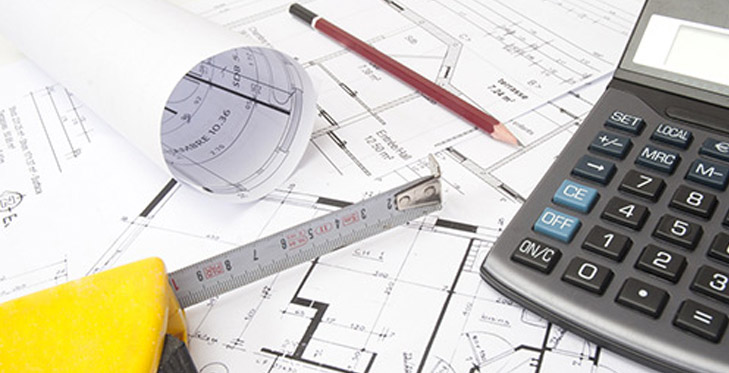Search results: 2060
This course is not yet visible to your students. Please don't forget to set the course visibility settings to "Show" when your course is ready. Refer to "4.1.1 HOW TO MANAGE COURSE SETTINGS" of the Teacher's Guide.
- Teacher: Joshua Cardines
Category: CEIT
This course deals with the determination of forces at any point or member of the given structure and it also deals with the selection and design of suitable sections to resist these forces so that the stresses and deformations developed in the structure due to these forces are within permissible limits.
- Teacher: CEIT_Katherine Grace Pea
Category: CEIT
This course is not yet visible to your students. Please don't forget to set the course visibility settings to "Show" when your course is ready. Refer to "4.1.1 HOW TO MANAGE COURSE SETTINGS" of the Teacher's Guide.
- Teacher: Kelvin Gessell Lucas
Category: CEIT
This course provides a basic understanding of the methods used to prepare a building and/or bridge construction cost estimate, earthwork cost and to do quantity utilizing plans and specifications.

- Teacher: Larry Rocela
Category: CEIT
This course will cover the review of Algebra, Probability and Statistics, Plane and Spherical Trigonometry, Analytic Geometry, Solid Geometry, Differential Calculus, Integral Calculus, Differential Equations, Engineering Economy, and Surveying courses in preparation for the Civil Engineering Licensure Examination.

- Teacher: CEIT_Dheylvin Roy Buenaventura
Category: CEIT
This course is not yet visible to your students. Please don't forget to set the course visibility settings to "Show" when your course is ready. Refer to "4.1.1 HOW TO MANAGE COURSE SETTINGS" of the Teacher's Guide.
- Teacher: CEIT_Dheylvin Roy Buenaventura
Category: CEIT
The course provides background on numerical analysis needed to solve civil engineering problems numerically when their analytical solution is either not available or difficult to obtain. MATLAB programming environment or its equivalent will be introduced and used in the course.
- Teacher: Ralph Crucillo
Category: CEIT
Building construction is examined from the standpoints of life safety (including fire safety and zoning constraints on site planning); architectural and building service systems (plumbing, electrical, vertical transportation, security, fire protection); materials, sustainability, and life-cycle analysis; accessibility; technical documentation and outline specifications; building enclosure systems; and interior finish systems.
The lecture course will focus on developing knowledge of building systems, including architectural design building materials and construction techniques, and will foster the skills required to a adopt a building systems approach compliant to the National Building Code and its referral codes. The students' developed knowledge of building systems will also include understanding of different types and applications of building materials and diverse construction techniques. Sustainability principles' impact on the property lifecycle, and how these will integrate and apply to skills and knowledge to industry-based case studies will also be examined. The course will include at least one site visit to an operating building in the locality.
The laboratory class will focus on the tools and techniques to create a computer-generated building model, and applied tools for working with computer model exploring output and simulation. Students will develop techniques looking at both realistic and schematic representation, and the integration of building systems modeling as a tool to inform and enhance the design process.
The lecture course will focus on developing knowledge of building systems, including architectural design building materials and construction techniques, and will foster the skills required to a adopt a building systems approach compliant to the National Building Code and its referral codes. The students' developed knowledge of building systems will also include understanding of different types and applications of building materials and diverse construction techniques. Sustainability principles' impact on the property lifecycle, and how these will integrate and apply to skills and knowledge to industry-based case studies will also be examined. The course will include at least one site visit to an operating building in the locality.
The laboratory class will focus on the tools and techniques to create a computer-generated building model, and applied tools for working with computer model exploring output and simulation. Students will develop techniques looking at both realistic and schematic representation, and the integration of building systems modeling as a tool to inform and enhance the design process.
- Teacher: Larry Rocela
Category: CEIT
Building construction is examined from the standpoints of life safety (including fire safety and zoning constraints on site planning); architectural and building service systems (plumbing, electrical, vertical transportation, security, fire protection); materials, sustainability, and life-cycle analysis; accessibility; technical documentation and outline specifications; building enclosure systems; and interior finish systems.
The lecture course will focus on developing knowledge of building systems, including architectural design building materials and construction techniques, and will foster the skills required to a adopt a building systems approach compliant to the National Building Code and its referral codes. The students' developed knowledge of building systems will also include understanding of different types and applications of building materials and diverse construction techniques. Sustainability principles' impact on the property lifecycle, and how these will integrate and apply to skills and knowledge to industry-based case studies will also be examined. The course will include at least one site visit to an operating building in the locality.
The laboratory class will focus on the tools and techniques to create a computer-generated building model, and applied tools for working with computer model exploring output and simulation. Students will develop techniques looking at both realistic and schematic representation, and the integration of building systems modeling as a tool to inform and enhance the design process.
The lecture course will focus on developing knowledge of building systems, including architectural design building materials and construction techniques, and will foster the skills required to a adopt a building systems approach compliant to the National Building Code and its referral codes. The students' developed knowledge of building systems will also include understanding of different types and applications of building materials and diverse construction techniques. Sustainability principles' impact on the property lifecycle, and how these will integrate and apply to skills and knowledge to industry-based case studies will also be examined. The course will include at least one site visit to an operating building in the locality.
The laboratory class will focus on the tools and techniques to create a computer-generated building model, and applied tools for working with computer model exploring output and simulation. Students will develop techniques looking at both realistic and schematic representation, and the integration of building systems modeling as a tool to inform and enhance the design process.
- Teacher: Larry Rocela
Category: CEIT
This course is not yet visible to your students. Please don't forget to set the course visibility settings to "Show" when your course is ready. Refer to "4.1.1 HOW TO MANAGE COURSE SETTINGS" of the Teacher's Guide.
- Teacher: CEIT_Roslyn Pena
Category: CEIT
This course deals on the principles and fundamentals of the laws on obligations, contracts, and professional ethics that are applicable to the civil engineering profession. It is designed to prepare civil engineering students for professional practice. Topics on the perspective of the student as future practitioners, contractors, and employees in the field are also given emphasis. They include the study of code of ethics, legal procedure in the practice of civil engineering in the Philippines, ethical relations of an engineer with fellow professionals, clients, and general public, elements of contracts, obligations, Civil Engineering Law, (RA 544) National Building Code, labor laws, E-Procurement Law, and the Manual of Professional Practice for Civil Engineers.
202021982
A.Y 2020-2021 SECOND SEMSTER
EVERY TUESDAY 10:00AM - 01:00PM
202021982
A.Y 2020-2021 SECOND SEMSTER
EVERY TUESDAY 10:00AM - 01:00PM
- Teacher: CEIT_Cene Bago
Category: CEIT
This course provides students with core concepts of chemistry that are important in the practice of engineering profession such as basic concepts of matter and its classification; mass relationships in chemical reactions; properties of gases, liquids and solids; concepts of thermochemistry; quantum theory and electronic behavior; periodic relationships of elements in the periodic table; intermolecular forces and solutions.

- Teacher: Ma. Corazon Herrera
Category: CAS
This course provides core concepts of chemistry that are important in the practice of the engineering profession.
- Teacher: CC_LeaMarissa Domingo
Category: Carmona Campus
This course provides core concepts of chemistry that are important in the practice of the engineering profession.
- Teacher: CC_LeaMarissa Domingo
Category: Carmona Campus
- Teacher: CAS_Cyra Eunice Tanael
Category: CAS
This course is not yet visible to your students. Please don't forget to set the course visibility settings to "Show" when your course is ready. Refer to "4.1.1 HOW TO MANAGE COURSE SETTINGS" of the Teacher's Guide.
- Teacher: CAS_Cyra Eunice Tanael
Category: CAS
The course deals with the structure and properties (with focus on reactivity) of organic compounds; elementary reaction mechanism; introduction to Bio-Organic chemistry; synthesis and properties of molecular probes

- Teacher: CAS_Myra Ambon
Category: CAS
This course is not yet visible to your students. Please don't forget to set the course visibility settings to "Show" when your course is ready. Refer to "4.1.1 HOW TO MANAGE COURSE SETTINGS" of the Teacher's Guide.

- Teacher: CAS_Katelyn Escalante
Category: CAS